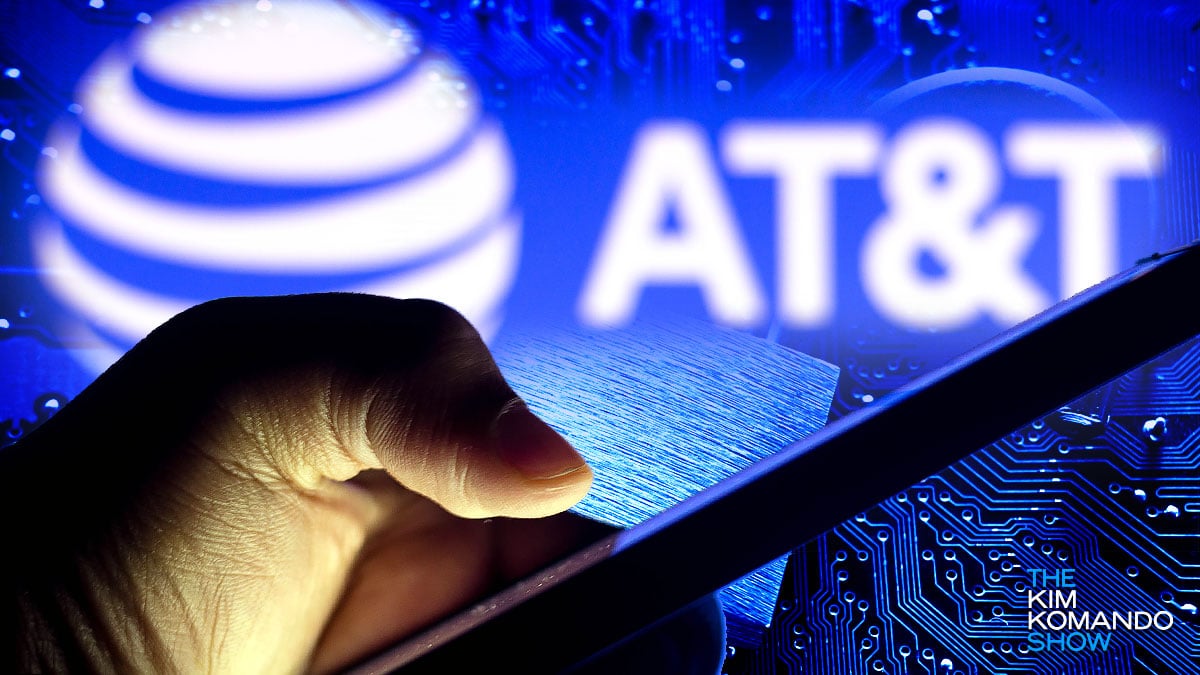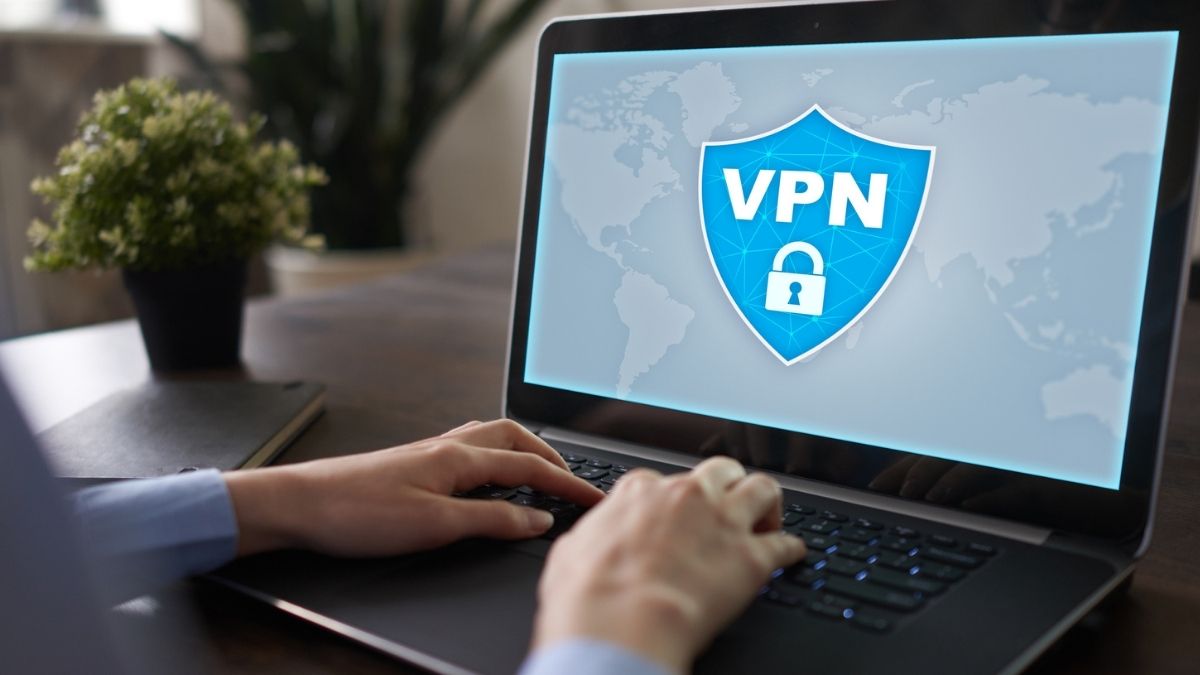Ausharee Mcleod says her 5 year old son’s Ring camera was hacked after he heard a voice whisper “hey” in the middle of the night.
3 security steps every small business needs to take right now

Business accounts can be hacked as easily as personal accounts. Imagine all your hard work being held at ransom by a hacker or your data falling into the hands of someone who can sell it to the competition.
You need to secure your business as best you can, and here are three crucial tips to get started. This tip is brought to you by our sponsor, NetSuite.
1. Don’t let everyone see everything
Access to information is critical for any business. The right people need access to your records, client files, financials and everything else you need to run your company. But not everyone needs to see everything. Does the new guy need to see the accounts receivable file? Nope.
If you keep files in a cloud storage system, regularly check who has access to what. Restrict files on a need-to-know basis.
The same goes for software. You don’t want your employees accessing more than they should. NetSuite lets you set different access levels so only those who need to see certain things can access them.
2. Do a password check
We’ve warned you about using the same login credentials for multiple accounts. This is important for your personal accounts — and even more so for your business.
If you use the same credentials for multiple accounts, a bad actor needs only to crack one password, and they’ll have access to everything. And you could be in BIG trouble if one of your accounts is breached.
There are a few essential password tips to keep your accounts secure:
- A password manager stores and generates login information for all your devices and accounts. These programs can be installed as software or accessed through a website, browser extension or the cloud. Tap or click here for more information on these useful tools.
- Avoid using a common word as the basis of a password. Go bigger and use a sentence. But don’t just write out a sentence; change it to make it harder to crack. For example, take the phrase “Cubs won the World Series in 2016” and abbreviate it to “cwtwsi2016.” Substitute some characters and cases, and you’ll have “cwTw$i2016.”
- For even more security, go with a full passphrase. In this example, you can use cUb$W1nW0rLd$3r13$1NzOI6. Now, that’d be tough to crack! It’s also challenging to remember, so don’t go more complicated than you can keep track of.
Tap or click here for 10 ways to secure your accounts with strong passwords.
5 common antivirus mistakes to avoid at all costs

Computer viruses can ruin everything. Systems that once worked well grind to a halt as your computer struggles to recover. That’s why antivirus programs are non-negotiable: They keep your digital life safe if you avoid the most common mistakes.
Hacked Ring camera
Chinese hackers target home routers
That little black box you have sitting in the corner is a hacker’s dream. Here’s how to lock it down and keep your precious data safe.
🇨🇳 Remember when Verizon went down a few weeks ago? Chinese hackers were targeting phones used by Republican presidential candidate Donald Trump and his running mate JD Vance, the New York Times reported. Verizon says they’re working with law enforcement. I’m sure the Harris campaign is being targeted, too. You couldn’t pay me enough to run for office.
Massive data leak impacts 1 in 3 Americans

Data broker MC2 Data left more than 100 million records of Americans exposed online for anyone to copy, grab, forward, sell on the Dark Web — you name it. This comes only a month after the National Public Data breach of 2.9 billion records. I’m getting so tired of these data broker companies and people-search sites screwing up, and it’s you and me who have to pay for their mistakes.
Why you need a VPN (even if you're not tech-savvy)
When surfing the web, you might encounter a few confusing acronyms. Take VPN, for example. You might shrug and scroll past it if you don’t know what it means. Just like that, you could miss out on the best internet privacy tool.
Chinese hackers reportedly collect U.S. phone call audio
A Chinese group called ‘Salt Typhoon’ is accused of targeting calls involving political campaigns. Plus, a list of words you shouldn’t Google, a big no-no with your phone in the voting booth, and Disney’s latest AI moves.
America's largest water company gets hacked
Our water is under attack. American Water, serving 14 million in 14 states, shut down systems after discovering hackers inside. Plus, MoneyGram data breach, playing poker against the bots, and influencer crashes $200K Lambo on livestream.
Hackers steal $285M in Bitcoin
$285 million in crypto — gone. Two hackers stole over 4,100 Bitcoin from a billionaire, but they didn’t get away with it. Plus, tips for using Perplexity AI, a shocking Titan submersible update, and a fantasy football fan caught sending fake threats.
Why smartphones can't be hacked to explode at once
Could America face the same kind of coordinated attack? The answer might surprise you.
Sextortion scams are getting more realistic
Got an email saying your webcam was hacked? Don’t worry — it’s just another sextortion scam. I’ll tell you why it’s all fake and how to stay safe.
"We have pics of your home"
Scammers are sending emails with Google Maps images of your house, claiming they’ve hacked your computer. Are they for real? Here’s the answer.
Hackers are selling old routers to spies
They’re using these routers for denial-of-service (DoS) attacks and spamming inboxes. Meanwhile, a man’s been cyberstalked by a former roommate — nightmare stuff. Plus, Microsoft got hacked, and OpenAI is launching a search engine.
Fraud and identity warning: Protect your info in one simple step

What do these things have in common: A data breach, a credit card offer in the mail, a form at the doctor’s office and a Dark Web marketplace?
If you guessed anything to do with your identity, you nailed it. All are ways someone can get their hands on your Social Security number. With just a handful of digits, they can do a lot of harm.
Storing cash in Venmo or Cash App? Your wallet's in danger
Unlike the money in your bank, you can lose your funds sitting in these apps. Plus, a hacker found thousands of big biz secrets, a new Amazon scam is spreading, and ChatGPT teases a search engine.
VPNs: How they work and how to choose the best one for you

I’m sure you’ve heard me mention VPNs before on my show. With hackers, thieves and scammers constantly out in full force, ready to steal your money, now’s the time to get on board.
VPN is short for virtual private network. What this means is when doing your banking online, hackers can’t step in the middle and steal your account information and drain your money. A VPN also stops your internet provider from tracking you and lets you unblock websites and bypass filters. You need it on your computer, laptop, tablet and phone.
Make $170K/yr answering questions online
One guy ditched his $75K gig after making more on JustAnswers. Plus, a mom’s nightmare: her 5-year-old’s bedroom cam was hacked. Apple’s throwing shade at Bing, AI robot dentists.
Update to iOS 17.6 ASAP: It packs 35 security fixes, tackling vulnerabilities that could let hackers control your phone. Don’t wait for it to pop up. On iPhone XS or later, go to Settings > General > Software Update now. Update your iPad, too, if you have one.
AT&T data breach: Who’s at risk and what to do now

AT&T dropped some big and very bad news this morning: “Nearly all” customers had text and call data leaked in a massive cyberattack. We’re talking 95 million people.
“Kim, really? Another data breach?” I know, but don’t tune this one out. It has scary implications for your privacy.
